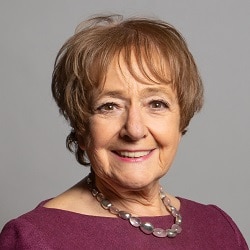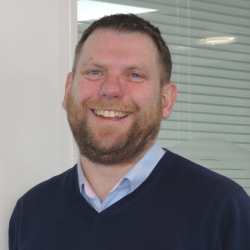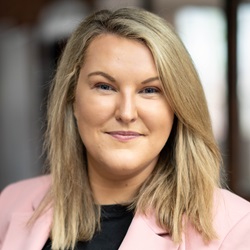
Hodge: Lawyers are very important in corruption landscape
The Prime Minister’s anti-corruption champion last night called for a new criminal offence that would see lawyers prosecuted for failing to prevent money laundering and economic crime.
Baroness Maragaret Hodge also revealed that parliamentarians supported moving to single supervisor for all of the profession’s anti-money laundering (AML) activities.
The former Labour minister was speaking at an event on the role of lawyers as professional enablers of corruption, organised at the Houses of Parliament by the All-Party Parliamentary Group on Anti-Corruption and Responsible Tax, and campaign group Spotlight on Corruption.
Baroness Hodge said economic crime had a huge impact on the UK economy and was damaging trust in the jurisdiction.
“The strength of the professional and financial sectors cannot be secured on the back of dirty money,” she declared.
“When you think about all these wicked people… they do not invent the schemes. The schemes are invented by the enablers, of which lawyers, I’m afraid, are one,” she went on.
“There are lots of ways lawyers help, whether it is construction companies, buying properties, setting up trusts, or acting on behalf of kleptocrats in SLAPP litigation. You are very important in that whole landscape of how corruption and kleptocracy thrives.”
The peer said the ministers were “very keen to pursue an anti-corruption strategy” and listed four areas that were being looking at in relation to lawyers.
The first was supervision. Currently, the Office for Professional Body Anti Money Laundering Supervision oversees nine legal and 13 accountancy AML supervisors across the UK, including the Solicitors Regulation Authority, Bar Standards Board, Council for Licensed Conveyancers and CILEx Regulation.
In 2023, HM Treasury consulted on the future of AML supervision, with a single supervisor for the legal sector one of the options. The Solicitors Regulation Authority has put itself forward for the role, but the government has yet to make a decision.
Baroness Hodge said: “All of [the current supervisors] are failing. There’s a pretty wide consensus that it would make sense to try and bring those all together into one organisation to get some consistency, and to stop people jumping from one organisation to another as well.
“This is particularly true in the accountancy sector but also true in the law.”
She also noted that many of the supervisory bodies “are facing both ways”, acting as both representative bodies and regulators.
Earlier this month, Spotlight on Corruption called for a single body to police AML supervision across the UK legal sector.
Second was the suspicious activity reports (SARs) regime. “There’s a tendency now to bureaucratically respond if you have a suspicion of malpractice. You just fill in a SAR and somehow you’ve done the business and you have no responsibility to go further,” she said.
The regime needed to be one that helped the enforcement agencies pursue wrongdoers and lawyers alert the authorities about red flags on matters.
The third was more action over SLAPPs (strategic lawsuits against public participation), for which there is “real broad support in both Houses”.
The final one was what Baroness Hodge described as “my passion”.
“The sad thing about the last economic crime bill was that we built a consensus across all political parties that we ought to introduce a new criminal offence which would apply to all the enablers, including the lawyers, whereby if fail to prevent money laundering and economic crime, they could be prosecuted.”
It did not make it to the statute book, however. “We didn’t want to lock up everybody… but we think it is an incredibly effective tool for stimulating behaviour change.”
The evidence from introducing a failure to prevent offence in the Bribery Act and, before that, to prevent injuries on construction sites, showed that they worked.
“I think this could be a game changer… If we could do that, we would then really see a massive step change in the growing horror of what economic crime has become and what Britain has become, which is one of the jurisdictions of choice for dirty money.”
After a debate that looked at regulatory (including self-regulatory) ways to improve behaviour, Baroness Hodge declared herself “too impatient”.
“I’ve been working on this for over a decade and I haven’t seen a shift in behaviour by enablers… In the end, the reason it doesn’t happen is that everyone’s making such a bomb in terms of money that they don’t want to give that up.
“I wish you well in trying to self-regulate but I have a lot of cynicism about your ability to do that in a timeframe that might still see me alive when it’s happened.”
Meanwhile, HM Treasury yesterday published its 2023-24 annual report on AML and counter-terrorist financing supervision.
This found that 20% of the firms subject to onsite visits and desk-based reviews by the legal supervisors were found to be non-compliant.
The legal supervisors took a total of 64 formal and 148 informal actions over AML breaches. In all, they supervised 7,564 legal businesses.












1 How many “lawyers” have been prosecutor facilitating money laundering?
2 Of those who failed to comply with AML Regulations by not having written policies, records of risk as stand evidence of training how many had facilitated money laundering?
Politicians are the greatest facilitators of money lauyand corruption by failing to pass appropriate legislation and by failing to fund anti money laundering policing properly.
Sort yourselves out first.